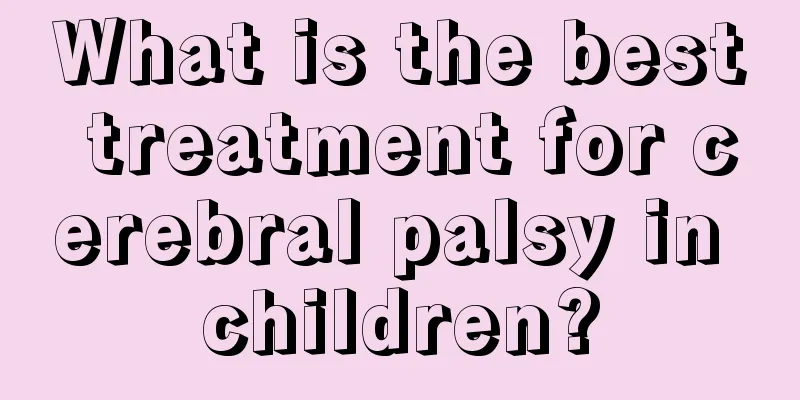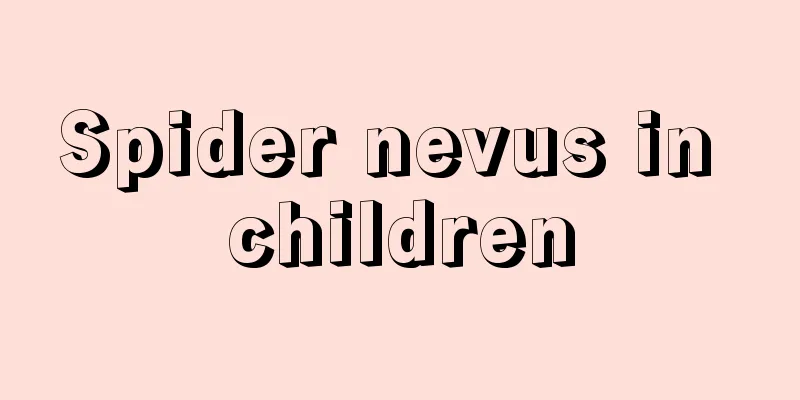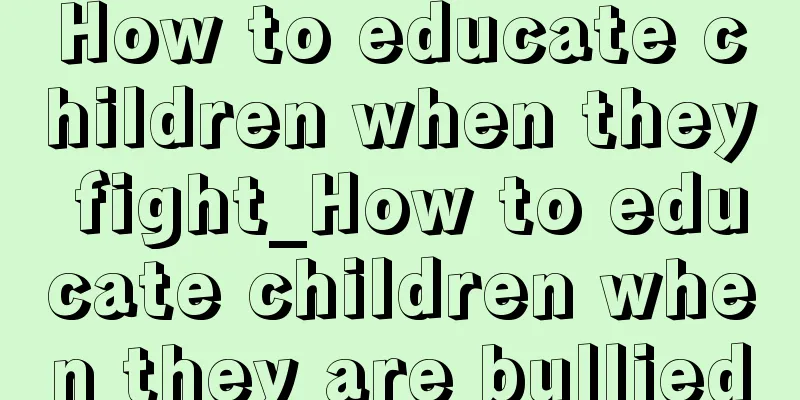How to guide children correctly

|
Because children are in adolescence, coupled with excessive study pressure, encountering setbacks and other situations, their minds are still immature, which can easily lead to children's emotional rebellious psychology, becoming unreasonable, irritable and other symptoms. This requires parents to provide correct guidance and communication, and transform it into positive motivation. So how should parents guide their children correctly? Next I will introduce it to you in detail. Trilogy NO.1 Parents should first accept their children’s negative emotions. Saying “you are always so ignorant” is a form of denial. "When children express negative emotions in life, it is actually just a way for them to express themselves. Don't imagine it to be too serious." Zhang Xiuping said that many children often yell and cry when faced with disappointment. Some parents are often dragged by their children's emotions and lose their composure. When faced with a child’s hysteria, parents are very likely to scold you: “Why are you always so ignorant?” In fact, saying this is tantamount to denying the child’s negative emotions. Doing so will not make the child's negative emotions disappear, but will instead encourage the child's repression and denial, which will harm the child. Because, when facing angry parents, children not only have to bear their own negative emotions, but also have to face their parents' negative emotions. This double burden is even more difficult for a child to relieve. To accept children’s negative emotions, we must allow them to express themselves freely. Parents should remain calm when facing their children's negative emotions. Many times, although you love your child in your heart, because you are too angry, you show complete denial and blame, which will make the child ignore the content of your words and focus on your emotions. For example, your child knocked over the milk that had been prepared for him because he was playing too much, and made the floor dirty. You were very angry and scolded him. At this time, the child's attention will shift from "the milk is spilled" to "Mom is angry". This misses the opportunity for children to recognize their mistakes and correct them. NO.2 Teach your children to accept their negative emotions. Sadness and regret are normal. Don't worry that your child is afraid, sad, or crying. If your child's favorite thing breaks, he or she will feel sad. At this time, the most taboo thing for a mother is to say, "I told you so a long time ago, but you just didn't listen. Look, now you know you were wrong." In such situations, what the mother should do is listen and sympathize, telling the child that she was also sad because a toy was broken, but sometimes it is broken and perhaps nothing can be done to fix it. It is okay to be sad and regretful. Because you are not the only one who has this experience. The sister next door also felt the same way when she lost her pet dog. Of course, parents should not tell their children that it is okay if something is broken and they can just buy a new one because they are afraid of making their children sad. If you choose to immediately replace the pain of loss with the happiness of having, your child will lose the opportunity to experience sad emotions, and will not be able to experience the joy of controlling sad emotions. Only by letting children learn to accept their negative emotions can they self-regulate and control things from developing in a worse direction. NO.3 Reasonably release and transform negative emotions As parents, we should clearly realize the importance of reasonably releasing and transforming negative emotions. Only by giving full play to the favorable aspects can we minimize the disadvantages. How to release negative emotions? Depending on the age of the child, there are several simple ways to vent. Crying is a good way to relieve negative emotions. It not only releases stress but also enhances immunity. Another example is shouting, exercising, etc., as long as the child's body is mobilized, the inner depression will gradually be vented with the movements of the body. Transforming negative emotions places higher demands on parents and children. Always think positively about things. A very effective way is to "use imagination to fulfill children's wishes." For example: Mom heard you say that your best friend misunderstood you and stopped talking to you, and you felt very disappointed and sad. Now, imagine if we had a Doraemon time machine and took your good friend to see the truth of the matter, the misunderstanding would be resolved! This can help children get out of negative emotions and even inspire them to imagine together. When the child's emotions turn into positive emotions, we can guide him to find better ways to solve the problem. For example: Since we want to clear up misunderstandings, what should we do? For younger children, parents can provide some reference answers for their children to choose from, so as to cultivate their problem-solving ability. |
<<: Bone protrusion on the inner side of the knee in children
>>: What should I do if my child is aggressive?
Recommend
If the baby has diarrhea, should I massage him counterclockwise or clockwise?
The baby's spleen and stomach functions are v...
What to do if your baby's face is swollen
Children's bodies are in the process of devel...
What causes high uric acid in children?
Generally speaking, high uric acid levels are a v...
What is the most effective food for children with phlegm?
It is a common phenomenon for children to have ph...
Symptoms of milk powder allergy in children
Although we usually support mothers to breastfeed...
How to deal with children's anxiety
Children's anxiety is also a mental health pr...
What causes children to be weak and sweat excessively?
Children's physical condition is definitely w...
What are the developmental indicators of a four-year-old baby?
It is the common wish of all parents that every b...
Boy's brain grows in his neck
In our daily life, we would be surprised when we ...
Symptoms of breast development in children
Breasts can be said to be secondary sexual organs...
Parents' tone of voice determines their children's emotional intelligence and IQ
Tone of trust Children especially want to be trus...
Can children digest snail shells?
Although snails taste delicious, they live in wat...
Symptoms of ADHD in two-year-old babies
If a two-year-old baby has ADHD, parents should p...
Children's rubbed legs syndrome?
Parents must observe their babies carefully when ...
What are the dangers of precocious puberty in children?
Many parents are confused when they find that the...









